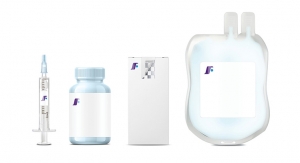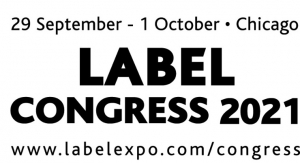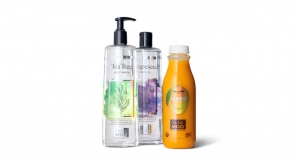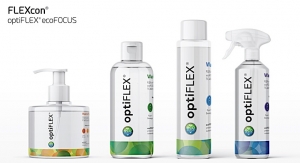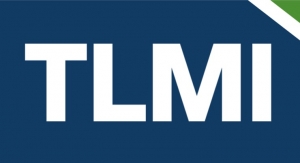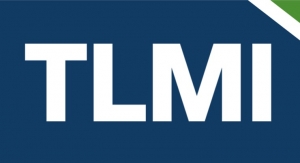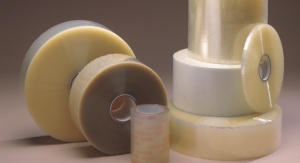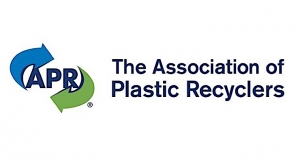Steve Katz, Editor05.18.17
FLEXcon, the Massachusetts-based supplier of pressure sensitive films for the label converting industry, has a longstanding and extensive track record of environmental stewardship. In fact, last year, TLMI (Tag & Label Manufacturers Institute) recognized FLEXcon with the 2016 supplier Environmental Leadership Award. The annual award recognizes both a converter and a supplier member each year that consistently demonstrates a commitment to progressive environmental practices across a range of areas. These include solid waste reduction, recycling, waste or energy recovery, the implementation of new ‘clean’ technology and/or processes, or the implementation of an education program.
FLEXcon recently renewed its Platinum sponsorship of the Sustainable Green Printing Partnership SGP – the highest level of sponsorship available. Jodi Sawyer is the Market Development Specialist for FLEXcon, and she was recently named to the SGP board of directors. SGP's mission is to "encourage and promote participation in the worldwide movement to reduce environmental impact and increase social responsibility in the graphic communications industry through certification and continuous improvement of sustainability and best practices within manufacturing operations."
As a member of the board of directors, Sawyer is helping carry out the objectives and purposes of SGP and helping to lead the direction of the organization. Label & Narrow Web recently caught up with Sawyer to discuss the state of sustainability within the label industry, as well as FLEXcon's role in making the industry greener.
L&NW: How important is the environment and sustainability to the future of your business?
Jodi Sawyer: FLEXcon views sustainability not as a program, but as a way of doing business. Sustainability is engrained in our culture. The responsibility that we all have as part of the supply chain is to support moving in a direction that has less impact on the environment wherever possible and this means that sustainability is not just about the product, but about the entire manufacturing process.
One way FLEXcon is ensuring sustainability is by working directly with our customers to reduce the size and thickness of some films and packing materials. This reduction in weight and material cuts down on waste for our customers, and benefits the environment. We’re also working to eliminate boxes for several of our products, which will help customers save space when storing inventory in their warehouses. Our ability to identify and implement these custom solutions for our customers is part of our culture at FLEXcon, and it’s vital to the continued success of our company.
L&NW: What are the trends that you’re seeing with regard to sustainability within labels and packaging space today?
JS: We’re seeing several trends taking off to incorporate sustainability into labels and packaging. For brands that are looking to trim down their overall packaging, thinner-gauged label materials can help decrease waste and freight as well as reduce the carbon footprint.
L&NW: How is FLEXcon helping to improve these types of initiatives for your customers?
JS: We’re working with customers to implement packaging recycling programs including plastic pallets, cores, and other packaging materials. We also continue to prioritize sustainability through our Environmental Management System, which has resulted in significant reductions in waste and natural resource usage. We are a proud Platinum sponsor of the Sustainable Green Printing Partnership (SGP), and our efforts have been recognized by TLMI as well.
About 65-75% of what we get from suppliers on average is recycled materials. Through our customer recycling programs, we work directly with our customers so they can return materials and ensure less freight involved when we’re using less packaging materials.
L&NW: What is the biggest takeaway you’d like our readers to know about the importance sustainability and its impact on the environment?
JS: The responsibility that we all have as part of the supply chain is to support moving in a direction that has less impact on the environment, while still allowing us to offer a quality product. This includes using our resources and energy responsibly, in a way that minimizes impact on the environment. In the grand scheme of things, it’s just as much about the process as it is the final product itself.
FLEXcon recently renewed its Platinum sponsorship of the Sustainable Green Printing Partnership SGP – the highest level of sponsorship available. Jodi Sawyer is the Market Development Specialist for FLEXcon, and she was recently named to the SGP board of directors. SGP's mission is to "encourage and promote participation in the worldwide movement to reduce environmental impact and increase social responsibility in the graphic communications industry through certification and continuous improvement of sustainability and best practices within manufacturing operations."
As a member of the board of directors, Sawyer is helping carry out the objectives and purposes of SGP and helping to lead the direction of the organization. Label & Narrow Web recently caught up with Sawyer to discuss the state of sustainability within the label industry, as well as FLEXcon's role in making the industry greener.
L&NW: How important is the environment and sustainability to the future of your business?
Jodi Sawyer: FLEXcon views sustainability not as a program, but as a way of doing business. Sustainability is engrained in our culture. The responsibility that we all have as part of the supply chain is to support moving in a direction that has less impact on the environment wherever possible and this means that sustainability is not just about the product, but about the entire manufacturing process.
One way FLEXcon is ensuring sustainability is by working directly with our customers to reduce the size and thickness of some films and packing materials. This reduction in weight and material cuts down on waste for our customers, and benefits the environment. We’re also working to eliminate boxes for several of our products, which will help customers save space when storing inventory in their warehouses. Our ability to identify and implement these custom solutions for our customers is part of our culture at FLEXcon, and it’s vital to the continued success of our company.
L&NW: What are the trends that you’re seeing with regard to sustainability within labels and packaging space today?
JS: We’re seeing several trends taking off to incorporate sustainability into labels and packaging. For brands that are looking to trim down their overall packaging, thinner-gauged label materials can help decrease waste and freight as well as reduce the carbon footprint.
L&NW: How is FLEXcon helping to improve these types of initiatives for your customers?
JS: We’re working with customers to implement packaging recycling programs including plastic pallets, cores, and other packaging materials. We also continue to prioritize sustainability through our Environmental Management System, which has resulted in significant reductions in waste and natural resource usage. We are a proud Platinum sponsor of the Sustainable Green Printing Partnership (SGP), and our efforts have been recognized by TLMI as well.
About 65-75% of what we get from suppliers on average is recycled materials. Through our customer recycling programs, we work directly with our customers so they can return materials and ensure less freight involved when we’re using less packaging materials.
L&NW: What is the biggest takeaway you’d like our readers to know about the importance sustainability and its impact on the environment?
JS: The responsibility that we all have as part of the supply chain is to support moving in a direction that has less impact on the environment, while still allowing us to offer a quality product. This includes using our resources and energy responsibly, in a way that minimizes impact on the environment. In the grand scheme of things, it’s just as much about the process as it is the final product itself.

